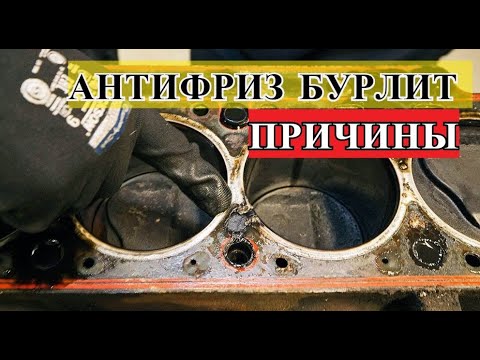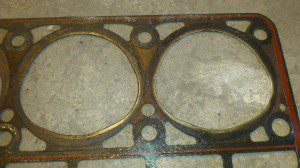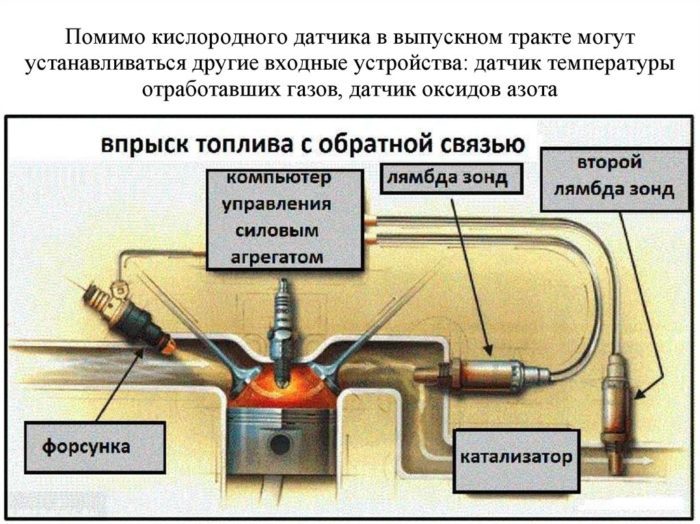
Why is the antifreeze boiling in the expansion tank?
 Many car owners, both Zhiguli VAZ and foreign-made cars, are faced with such a problem as the bubbling of antifreeze or other coolant in the expansion tank. Many people may think that this is a minor problem that should not be paid attention to, but in fact it is very serious and the engine needs to be repaired when such signs appear.
Many car owners, both Zhiguli VAZ and foreign-made cars, are faced with such a problem as the bubbling of antifreeze or other coolant in the expansion tank. Many people may think that this is a minor problem that should not be paid attention to, but in fact it is very serious and the engine needs to be repaired when such signs appear.
A couple of days ago I had an experience of repairing a domestic car VAZ 2106 with a 2103 engine. I had to remove the cylinder head and pull out the two gaskets installed earlier between the head and the block, and put one new one.
According to the previous owner, two gaskets were installed in order to save on gasoline and instead of 92 fill 80 or 76th. But as it turned out later, the problem was much more serious. After a new cylinder head gasket was installed and all other parts were installed in their place, the car started up, but after a few minutes of work, the third cylinder stopped working. The bubbling of antifreeze in the expansion tank also began to actively manifest. Moreover, it began to be squeezed out even from under the radiator cap in the filler neck.
The true cause of the malfunction
It didn’t take long to think what the real reason for this was. After unscrewing the spark plug from the non-working cylinder, it was clear that it had drops of antifreeze on the electrodes. And this says only one thing - that the coolant enters the engine and begins to squeeze it out. This happens either when the cylinder head gasket burns out, or when the engine is overheated, when the cylinder head is moved (this cannot be determined by eye).
As a result, the antifreeze enters both the engine and the cylinder head from the pressure in the cylinders it begins to squeeze out into all accessible places. It begins to leave through the gasket, from the excess pressure, it begins to boil into the expansion tank and into the radiator.
If you notice a similar problem on your car, especially if seething is present on a cold engine even from the radiator plug, then you can prepare to replace the gasket or even grind the cylinder head. Of course, it is necessary to look at the real cause of this malfunction already on the spot.
